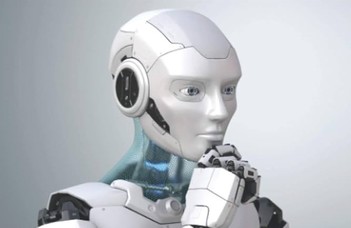Computational Intelligence and Cognitive Robotics

Computational Intelligence and Cognitive Robotics
Research Group
Contact: https://mi.inf.elte.hu/munkatarsak
Description of Activities
One method to produce intelligent machine behavior is drawing inspiration for solutions from nature and biology. This approach is termed computational intelligence. It consists of a variety of methods and techniques, including artificial neural networks, evolutionary technology (e.g, genetic algorithms), fuzzy systems or swarm intelligence.
Research at our group has a specific focus on computational intelligence. It is our belief that we must learn from 'intelligent methods' found in nature. Our colleagues have extensive experience in the various fields of this domain.
As robotics develops, it is increasingly entering our everyday lives. This makes it increasingly important to take into account in the design of robots that the agent must be able to interact with humans in many cases. This is not only important in social robotics, but also in industrial robotics, as collaborative robots are becoming more common in industry, where robots performing tasks on the production line no longer need to be physically confined thus interactions are becoming more frequent.
Research Interests
- Computational Intelligence
- Machine Learning
- Cognitive Robotics
Research/service concepts/Methodology
- Evolutionary computation
- Fuzzy systems
- Spiking neural networks
- Memetic algorithms
- Swarm intelligence
- Human-robot interaction
- Human-robot collaboration
Research Staff
- János Botzheim, Associate Professor
- Márk Domonkos, Ph.D. student
- Natabara Gyöngyössy, Ph.D. student
- István Reményi, Ph.D. student
- Szilárd Kovács, Ph.D. student
- Szilárd Fecht, Ph.D. student
- Aphilak Lonklang, Ph.D. student
- Ákos Holló-Szabó, Ph.D. student
- Hunor Lukács. Ph.D. student
Projects
- Anomaly detection (Bosch)
- Drowsiness detection (Bosch)
- Human-robot collaboration (Bosch)
- Production line optimization (Bosch)
- National Laboratory for Social Innovation
5 important publications in the field
- Bencsik, B., Reményi, I., Szemenyei, M. and Botzheim, J. (2023) ‘Designing an Embedded Feature Selection Algorithm for a Drowsiness Detector Model Based on Electroencephalogram Data‘, SENSORS, 23(4), pp. 1874:1–1874:22.
- Domonkos, M., Tresó, Á. and Botzheim, J. (2023) ‘Online Surveying System for Experimentally Testing the Human Perception of Visual Gestures‘, 2023 9th International Conference on Automation, Robotics and Applications (ICARA), New York University Abu Dhabi, February 10-12 2023, pp. 329–333.
- Lonklang, A. and Botzheim, J. (2023) ‘A Rapidly-Exploring Random Tree Algorithm with Reduced Random Map Size‘, 2023 9th International Conference on Automation, Robotics and Applications (ICARA), New York University Abu Dhabi, February 10-12 2023, pp. 356–361.
- Kovács, Sz., Bolemányi, B. and Botzheim, J. (2022) ‘Placement of Optical Sensors in 3D Terrain Using a Bacterial Evolutionary Algorithm‘, SENSORS, 22(3), pp. 1161:1–1161:22.
- Mohai, K., Kálózi-Szabó, Cs., Jakab, Z., Fecht, Sz. D., Domonkos, M. and Botzheim, J. (2022) ‘Development of an Adaptive Computer-Aided Soft Sensor Diagnosis System for Assessment of Executive Functions‘, SENSORS, 22(15), pp. 5880:1–5880:15.
- Gyöngyössy, N. M., Eros, G. and Botzheim, J. (2022) ‘Exploring the Effects of Caputo Fractional Derivative in Spiking Neural Network Training‘, ELECTRONICS, 11(14), pp. 2114:1–2114:20.
Infrastructure
 |
| Turtlebot3 Waffel, Turtlebot3 Burger https://emanual.robotis.com/docs/en/platform/turtlebot3/features/#specifications |
 |
| Bioloid Premium https://emanual.robotis.com/docs/en/edu/bioloid/premium/ |
 |
| Kassow KR1410 Collaborative Robot Arm (Robert Bosch Ltd.) https://www.kassowrobots.com/products/7-axis-collaborative-robot-arm-kr-series |

